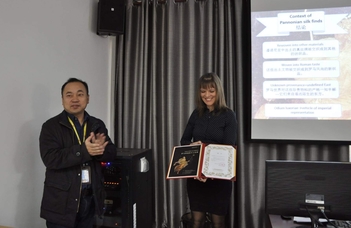New research group has been founded

It aims to develop an understanding of the relations between the Roman world, Southeast Asia, and China and to facilitate comprehensive and synthetized research that includes written texts, a complex database of archaeological data (both Roman and related materials), and a theoretic framework. The Research Group intends to shed new light on the different networks and communities linking the Roman world to the Far East. Within the framework of this project, relevant archaeological materials from and textual sources about the regions of Southeast Asia and China will be compared, and the possible reasons behind the appreciation of Roman and Roman-like artefacts in the above-mentioned communities will be analyzed.
During the three-year period of funding, the project will explore four main topics. First, links between the Roman world, Vietnam, and Southern China will be studied through Western and Chinese documents and archaeological data. The goal is to better comprehend the role of Vietnam in transferring Roman objects to the Far East. Second, by comparing Chinese and Western records about Southeast Asia, the project intends to reveal how these accounts relate to the Chinese perceptions of the Far West and to the Western perceptions of the Far East. The aim is to better understand the development of ancient views of the Outer World. In the end, theoretical models will be used in order to better comprehend why certain communities with different cultural backgrounds preferred different types of Roman and related objects in Southeast Asia and China. Results will be continuously communicated and presented at local as well as at international conferences.
Consequently, the Research Group aims to draw attention to the complexity of ancient communication networks operating along the Silk Roads and to stress the significance of mediator cultures. It also plans to show the entanglement between terrestrial and maritime routes used in cross-cultural communications in antiquity.
Members:
- Krisztina Kinga Hoppál, PhD (archaeologist; group leader)
- Melinda Pap, PhD (sinologist; postdoctoral researcher)
- Gábor Péter Boros (sinologist; PhD student)

